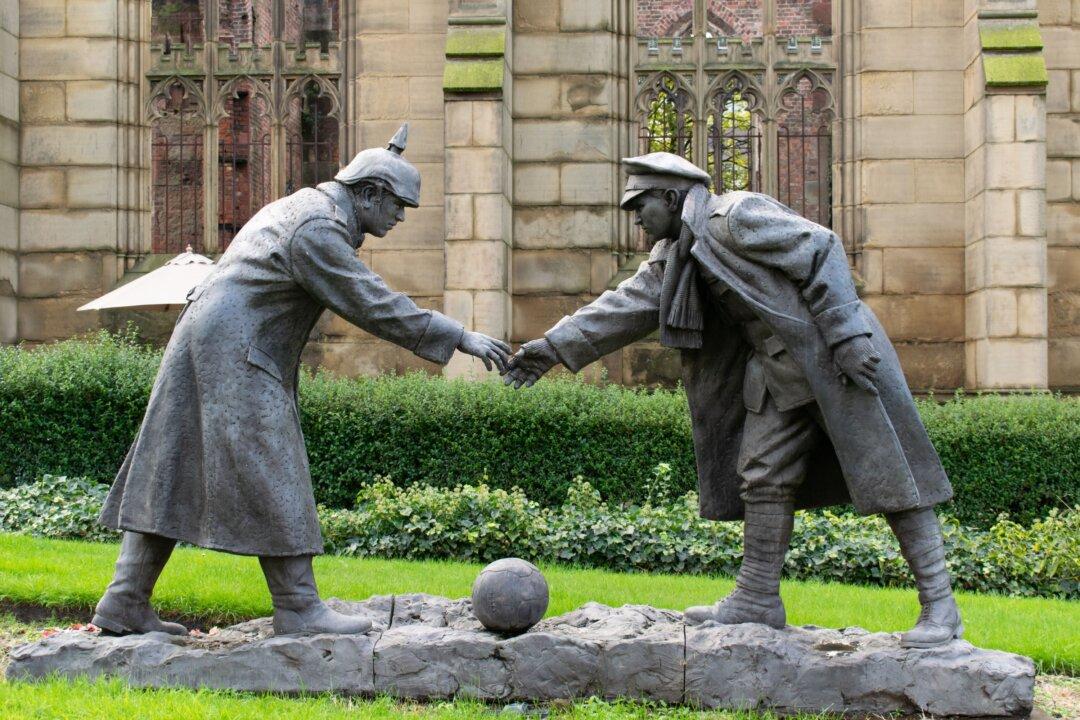Commentary
By Christmas Day 1914, five months after the outbreak of the Great War, trenches filled with British, Canadian, French, and German troops faced each other on a deadly European battlefront.

By Christmas Day 1914, five months after the outbreak of the Great War, trenches filled with British, Canadian, French, and German troops faced each other on a deadly European battlefront.